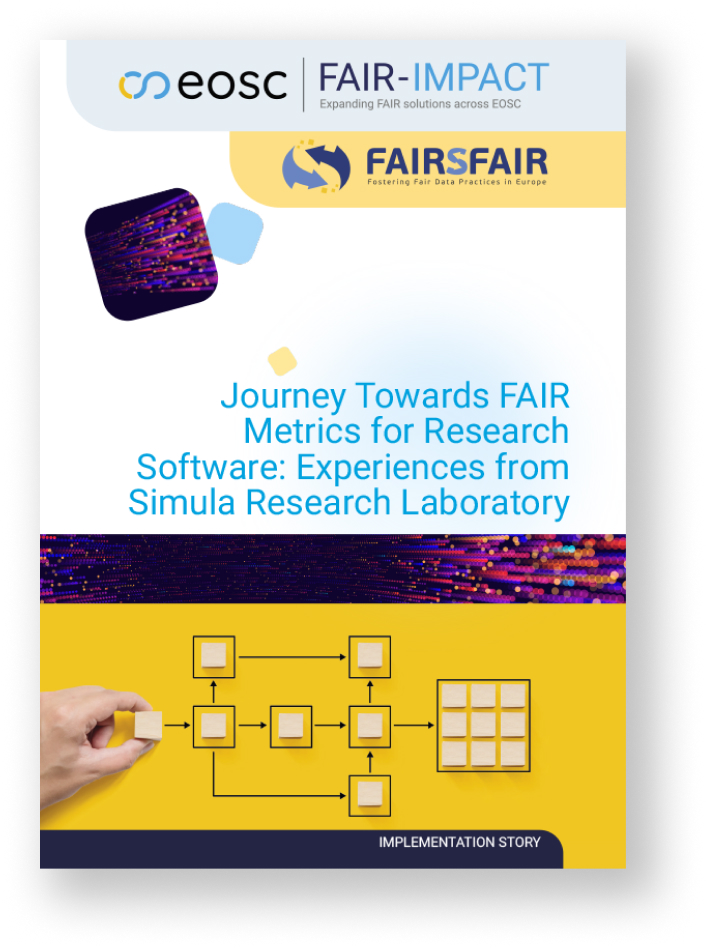Journey Towards FAIR Metrics for Research Software: Experiences from Simula Research Laboratory
Software plays a crucial role in academic research, not only as a tool for data analysis but also as a research outcome or result, or even the object of research itself. FAIR (Findable, Accessible, Interoperable, Reusable) research software can increase the transparency, reproducibility, and reusability of research. For this to happen, software needs to be well-described (by metadata), inspectable, documented and appropriately structured so that it can be executed, replicated, built-upon, combined, reinterpreted, reimplemented, and/or used in different settings. The FAIR4RS Principles aim to guide software creators and owners on how to make their software FAIR. FAIR-IMPACT offered two support actions designed to enhance the FAIRness and impact of research software:
- Assessing and improving existing research software using a new extension of F-UJI which implements some of the metrics for automated FAIR research software assessment.
- Implementing the Research Software MetaData (RSMD) guidelines for better archiving, referencing, describing, and citing research software artefacts.
This FAIR Implementation Story outlines the specific aims and actions of Simula Research Laboratory in relation to their participation in one or both support actions.
"Our journey began with the goal of critically assessing the FAIRness of these pivotal RS projects. With FAIR principles in mind, we aimed to ensure that our software contributions were not only beneficial for our immediate research community, but also findable, accessible, interoperable and reusable for a broader scientific audience".
Supported applicant:
- Anne Fouilloux, Simula Research Laboratory (NO)
- Alejandro Coca-Castro, The Alan Turing Institute (UK)
